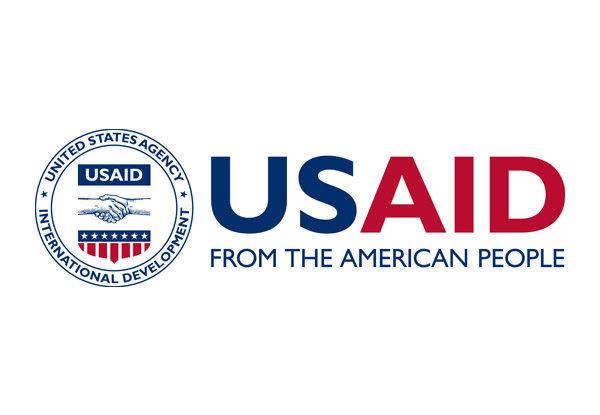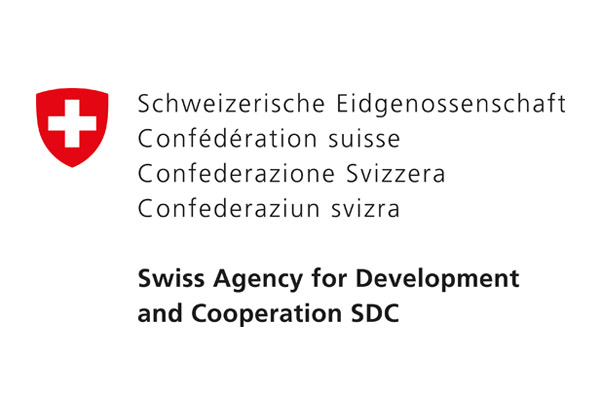Legal
Diversity, inclusion and equality policy
As of 30 April 2024 this document is under review and will be updated by 30 September 2024.
This policy is subject to change in accordance with new legislation and supersedes any earlier dated policy, procedure, agreement or arrangement.
It is based on UK legislation, the principles of which are applied in all locations where GNDR operates, unless local legislation gives greater provision or protection. This policy does not form a part of an individual’s contract of employment.
1. Introduction
Strong relationships are at the foundation of GNDR. GNDR aims to create a working environment in which every person is valued as an individual and treated in a manner which preserves their dignity, respect and equality. It is our policy not to discriminate on the basis of age, disability, gender reassignment, race or ethnicity, religion or belief, sex, sexual orientation, marriage and civil partnership and pregnancy and maternity, known as “Protected Characteristics” under the UK Equality Act (2010).
Moreover, GNDR values diversity in its staff, volunteers and members, and will ensure that different groups, particularly but not limited to gender, sexual orientation, race and ethnicity, language, and location, are represented in activities and decisions to give wider perspectives on Risk Informed Development, greater creativity and innovation in outworking GNDR’s strategy, and to better understand the needs of those affected by disasters.
All individuals within GNDR have a duty to act in accordance with this policy and treat colleagues with dignity and respect at all times. GNDR will not tolerate any discriminatory practices or behaviours.
2. Scope
This policy applies to all GNDR employees, Trustees and Board members, consultants, job applicants, volunteers, suppliers, contractors, visitors and anyone who visits GNDR. Where volunteers are referred to in the policy it includes all individuals who contribute to GNDR’s activities in formal unpaid roles, including Trustees, Board members, Regional Advisory Group members, and National Focal Points. The policy sets out the standard by which individuals can expect to be treated as well as outlining the ways in which you are to treat others.
This policy applies to the advertisement of jobs and voluntary positions, recruitment and selection, supervision and management, learning and development, conditions of service, pay and benefits, conduct at work, disciplinary and grievance procedures and termination of employment, including redundancy.
The policy also applies to organisational applicants seeking to become members of GNDR as well as the management of membership and participation in the activities of GNDR.
3. Definitions
Diversity means the range of individuals within the organisation, and valuing those differences. For example, this might mean ensuing representation of individuals with different ages, religions, ethnicities and race, individuals with disabilities, and both men and women.
Inclusion means that individuals, regardless of their differences, feel respected and valued within GNDR and able to actively contribute.
Equality is ensuring individuals or groups of individuals are treated fairly and equally and no less favourably. Promoting equality can lead to reduced discrimination.
Discrimination may be direct or indirect and it may occur intentionally or unintentionally. The UK Equality Act (2010) sets out different forms of discrimination, summarised as:
Discrimination occurs when an individual, or a group of individuals, are treated less favourably than others on the grounds of age, disability, gender reassignment, race or ethnicity, religion or belief, sex, sexual orientation, marriage and civil partnership and pregnancy and maternity, known as “Protected Characteristics” under the UK Equality Act (2010), or on the grounds of union membership.
Harassment is “unwanted conduct related to a relevant protected characteristic, which has the purpose or effect of violating an individual’s dignity or creating an intimidating, hostile, degrading, humiliating or offensive environment for that individual”. Example: A disabled employee is constantly being teased and humiliated by their line manager about their disability.
Direct discrimination occurs when an employee or member is treated less favourably because of a protected characteristic they have or are thought to have. Example: Rejecting an applicant of one race because it is considered they would not fit in on the grounds of their race.
Discrimination by association is discrimination against an employee or member because they are associated with another person who possesses a protected characteristic. Example: A non-disabled employee who is discriminated against because they need to take care of a disabled dependent.
Perception discrimination is discrimination against an employee or member because others think they possess a particular protected characteristic, even if they do not in fact do so. Example: An employee not being allowed to represent the organisation at a meeting because they appear too young or too old.
Indirect discrimination occurs when an employee or member have a condition, rule, policy or practice which particularly disadvantages other employees or members who share a protected characteristic. Example: A height requirement would be likely to eliminate proportionately more women than men.
4. Implementation of the policy
The Executive Director, supported by the Senior Leadership Team (SLT), is responsible for the effective implementation of the Diversity, Inclusion and Equality Policy, including compliance with relevant legislation. This includes creating and maintaining a culture which welcomes diversity, is inclusive, treats individuals fairly and equally, and respects and seeks different perspectives in line with the GNDR values. Discrimination by or against anybody associated with GNDR is prohibited unless there is a specific legal exemption.
All staff and volunteers have a responsibility to familiarise themselves with the policy and seek to promote diversity, inclusion and equality.
Implementation of the policy focuses on two main areas, firstly the treatment of candidates, staff and volunteers, and secondly the treatment of GNDR members.
4.1 Staff and voluntary positions
4.1.1 Recruitment and selection
The Recruitment & Selection Policy outlines GNDR’s approach to recruitment practices.
GNDR aims to attract as wide a range of candidates as possible for advertised roles, to give a diverse pool for managers to select staff from, to create a diverse staff team. GNDR will not positively discriminate, but will take positive action to ensure vacancies are advertised widely to attract a diverse range of candidates, and that selection panels are diverse to reduce bias in selection. GNDR will also ensure job descriptions and workspace are designed to not discriminate. This includes considering flexible working arrangements, including part-time and TOIL arrangements, and ensuring our offices are equipped with disabled access and appropriate facilities.
GNDR aims to ensure that no job applicant experiences discrimination because of any protected characteristics. The recruitment will be non-discriminatory by appointing the best person for the role based on merit, ability and relevant experience measured against the job description and person specification.
Recruitment procedures will be reviewed regularly to ensure they remain non-discriminatory, are representative, and HR will advise recruiting managers on process to minimise any possibility of bias.
4.1.2 Supervision and management
In the supervision and management of employees and volunteers, GNDR will ensure that individuals are treated fairly and equally in the allocation of work, and that assessments of performance are free from bias. Managers will ensure that all staff feel included and valued, regardless of their background.
All employees will be given equal access to learning and development opportunities, based on their personal development needs, the priority development areas for GNDR, and funding availability.
4.1.3 Promotion
Promotion is not practised in GNDR, instead, GNDR encourages staff to apply for externally advertised vacancies. All selection decisions are based upon individual merit, ability, and relevant experience, measured against the job description and person specification for the role.
4.1.4 Pay and benefits
GNDR’s pay and benefits will be fair and equitable, and no employee will be unfairly excluded from receiving the appropriate pay and benefits for their role. GNDR will monitor the use of fixed-term and part-time contracts to ensure they are being offered appropriate access to benefits, training, promotion and employment opportunities.
4.1.5 Redundancy
In rare instances where GNDR has to make employees redundant, the criteria used to select staff for redundancy will be fair and objective, and will not directly or indirectly discriminate against any employees.
4.1.6 Monitoring
As part of the selection process all new staff will be requested to complete an optional diversity questionnaire to allow GNDR to monitor its diversity.
GNDR recognises that at times certain groups can be under-represented in the staff team and voluntary positions. As such each year SLT will review the diversity data for staff and volunteer positions and update the Diversity and Inclusion Action Plan to ensure positive action is taken to address any under-represented groups.
Inclusion will also be monitored through staff surveys.
4.2 Members
4.2.1 Member applications
GNDR seeks members who are representative of the communities in which they engage. When organisations and individuals apply to join the network, GNDR will aim to ensure that no applicant suffers discrimination because of any protected characteristics listed above. The application process will be open, transparent and non-discriminatory, accepting organisations based on merit against published criteria. Our membership application procedures are reviewed regularly and Membership Engagement Coordinator will set in place processes to minimise any possibility of discrimination. The Governance Manual outlines GNDR’s approach to membership recruitment.
4.2.2 Participation in GNDR activities
GNDR seeks to represent the broad nature of the network within GNDR activities. The selection of members to participate in GNDR activities, such as online discussions, conferences and events; participate in advocacy campaigns and lobbying; and to be project partners and receive donor funding through GNDR, will be free from discrimination. Decisions will be made through open, transparent and non-discriminatory processes based on merit for the specific activity.
5. Breaches of this policy
GNDR is committed to the principle of Diversity, Inclusion and Equality as set out in this policy, ensuring they are implemented in our work. Any individual or group who breaches this policy and treats others unfavourably, unlawfully or with discrimination will be managed in accordance with the Disciplinary Policy. Such behaviour may constitute gross misconduct and, as such, may result in summary dismissal.
If you believe that you may have been discriminated against, or subject to bullying or harassment you are encouraged to raise the matter through the Grievance Policy and Procedure. Employees who make such complaints in good faith will not be victimised or treated less favourably as a result.
Contact us
If you’d like to get in touch with us, or have any questions about our work please contact us.
Contact us


